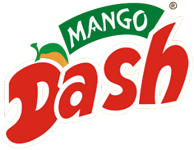Mango juice contains a number of valuable nutrients. The naturally fulfilling fruit beverage also acts as a beneficial dietary food item that aids in normal bodily functions and the prevention of health risks and disease.
Like many other natural fruit Mango drinks, mango juice, sometimes referred to as mango nectar, packs a variety of both vitamins and minerals. Each cup of mango juice adds a more than feasible source of both vitamins A and C to any diet. Without added sugars, pure mango nectar contains about 30 grams of sugary carbohydrates per cup.
Although mangos contain moderate to high levels of carbohydrates, they cause little fluctuation in blood-sugar levels. This process lets the body maintain appetite and metabolic processes much easier. Plus, none of the calories found in mangos comes from fat, making the juice an easily digestible, energy providing drink.
Health Benifit
One cup of mango juice contains over 60% of the daily recommended intake of vitamin C, which helps the body regulate enzymes and metabolic processes. Mangos also have high levels of vitamin A, with one cup providing nearly 40% of the daily required valued. This important nutrient helps maintain healthy eye function and growth, gene transcribing and the maintenance of healthy skin tissue..
Mango juice also provides a good source of calcium and iron. Iron helps the body eliminate free radicals, while calcium assists with the formation of healthy teeth and bones.
mango pulp
Mango Juice Yes you heard it right..!! Just do yourself a favour by making homemade mango juice before you grab a bottle of mango dash or mango drinks and you will sure thank me enough for it Mango juice.


No comments:
Post a Comment